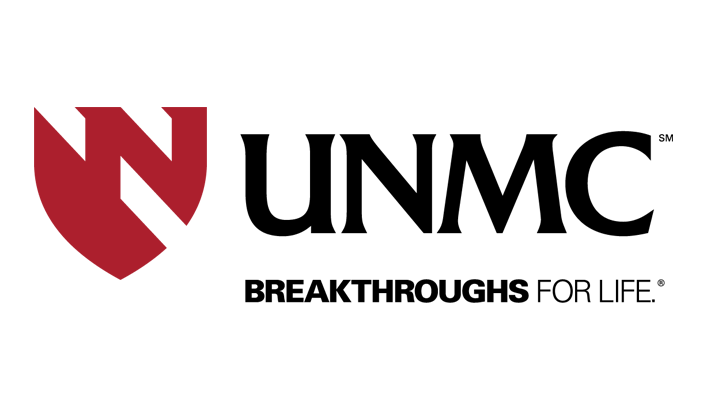On Feb. 9, the University of Nebraska Board of Regents approved the establishment of the Doctor of Nutrition and Dietetics (DND) program, to be housed within and administered by the University of Nebraska Medical Center College of Allied Health Professions.
The clinical doctorate degree is designed to offer practicing registered dietician nutritionists (RDN) “an advanced practice course of study including advanced clinical nutrition and nutrition science, leadership, advocacy, education in higher learning institutions, and scholarly activity,” according to the proposal presented to the regents. UNMC will seek accreditation of the program through the Accreditation Council for Education in Nutrition and Dietetics (ACEND) and approval from the Nebraska Coordinating Commission for Postsecondary Education.
The program plans to enroll up to eight students in fall 2024, with an incremental annual increase of up to four students per year until maximum enrollment of 20 students per year is achieved.
“As the field of nutrition and dietetics continues to advance nationally, UNMC’s will be one of the first accredited advanced-practice doctorate degrees offered in the U.S.,” said Kendra Schmid, PhD, assistant vice chancellor for academic affairs. “We expect the program to be highly marketable in Nebraska and nationwide.”
This continues UNMC’s commitment to offer both entry-level allied health profession education programs as well as emerging degrees that advance allied health professionals and their respective professions. To put it another way, to produce the highest quality allied health workforce to practice at the highest scope of their respective professions.
“To fulfill this mission, the CAHP programs are, and must continue to be, at the ‘cutting edge’ of both health professions education pedagogy and the evolution of the allied health professions,” said Kyle Meyer, PhD, dean of the College of Allied Health Professions.
Corrine Hanson, PhD, director of medical nutrition, agreed: “The advent of nutrition diagnosing, order writing, evidence-based practice, and outcomes research — along with the increasingly recognized role of nutrition and diet in the management of complex medical and surgical conditions — has created a demand for advanced practice dietitians who can assume these expanding roles and responsibilities.”
Effective Jan. 1 of this year, the minimum degree requirement for practicing RDNs is now a master’s degree or higher. But there are currently few choices for doctoral-level training in the field, beyond the traditional PhD path.
“There was clearly a need for a professional practice doctoral degree pathway to fill this gap,” said Tammy Webster, PhD, CAHP’s assistant dean for academic affairs.
UNMC met the opportunity to step up, said Chancellor Jeffrey P. Gold, MD: “We are proud that once again our College of Allied Health Professions has taken a position of national leadership that also benefits the health of Nebraskans — both as highly sought after professionals, and as patients who will benefit from their expertise. We cannot wait to see the myriad ways this new program will lead to new collaborations with our colleagues on the University of Nebraska campuses and across the nation.”
Interest for a doctoral-level degree in the field is high among both practitioners and employers, according to national and UNMC surveys. The U.S. Bureau of Labor Statistics projects a nearly 12% increase in demand for registered dieticians in Nebraska from 2020-2030, and a more than 11% increase nationwide over that span.
The University of Nebraska-Lincoln, which offers a PhD in nutrition and dietetics, sent a letter to the regents in support of the new program. UNMC’s DND degree complements UNL’s efforts, the letter said, and opportunities for synergy and partnership already are being brainstormed.
UNMC’s new DND program will accept credentialed RDNs with master’s degrees and three-plus years of post-credential experience, or those without master’s degrees but five-plus years of post-credential experience. The DND program will consist of didactic courses, a scholarly project and residency, for 48 total credit hours. The program will be offered fully online to meet the needs of practicing RDNs in Nebraska and across the U.S.
UNMC’s Office of Academic Affairs championed the proposal for the new degree, offering indispensable support, Dr. Webster said.
Tuition revenue generated by the DND program will be sufficient to cover projected expenses at inception due to existing resources. No state or other public funding is projected to be required.
About UNMC
As Nebraska’s only public academic health science center, the University of Nebraska Medical Center enrolls more than 4,500 students across six colleges, two institutes and a graduate studies program. Its mission is to create a healthier future for Nebraskans through premier education, research and clinical care, but its impact — rooted in a culture of collaboration, big ideas and public-private partnerships – goes far beyond, in areas that include infectious diseases, rural health, cancer research and treatments, global health security, and simulation and experiential learning technologies.
